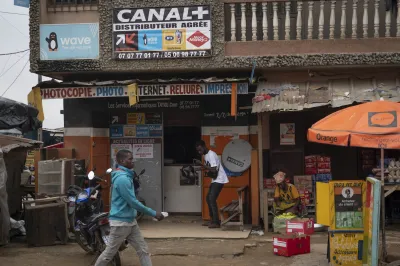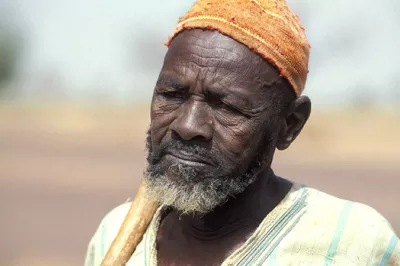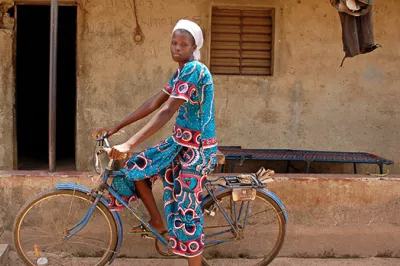Can Disruptive Innovation Favor Financial Inclusion in Côte d’Ivoire?
Cote d'Ivoire's mobile money market is an excellent opportunity to reflect on whether market disruptions contribute to financial inclusion, given a recent revamp of mobile money business models in the country. CGAP analysis identified significant risks from this change that could reduce financial inclusion in rural areas. These risks will require monitoring by industry and government stakeholders to assess how widespread they are, and collective action from stakeholders to mitigate them.
Since its arrival to the Ivorian market in April 2021, Wave (a fintech) has quickly gained market share over the dominant players like Orange, MTN, and Moov. It did so with an easy-to-use customer-facing app for money transfers. For customers without smartphones, Wave issued a card with a QR code to process their transactions. Most drastically, Wave lowered customer money transfer fees to 1% of the transfer value – a significant drop from the 6% average in the complex tiered fee system used before. Lastly, Wave offered free cash-out for customers when competitors were charging about 4%. Seeing a clear dent in their market share, the dominant players soon lowered their money transfer fees to zero and matched Wave's 1% cash-out fee. They also shifted service delivery from Unstructured Supplementary Service Data (USSD) to a customer-facing app.
Implementing the new pricing structure meant all providers had to cut costs drastically. The largest cut was on agent commissions, which fell to half by most reports. As all providers moved to lower agent commissions, the business proposition made to agents was that the drop in customer prices would generate a rise in customer transactions that would more than offset the fall in agent revenue. Wave's rise in market share suggests that this was indeed the case for many agents, but for many others, it was not. Several agent syndicates organized a strike that closed agents across the country for several days in August 2022.
During all of this, CGAP and MSC Consulting began a study to analyze the various agent management models in the country. Research is still ongoing, but so far we've been able to interview over 100 individual and master agents and around 60 customers across rural areas. Although this is a partial snapshot of the situation, it helps us understand the initial impact of the country's new mobile money business model on the reach of digital financial services (DFS) distribution networks.
Disruption has had uneven effects on rural and urban customers and agents
Overall, we are finding that rural agents, who face low foot traffic in less densely populated areas, suffer much more than their urban counterparts. Exclusive master agents report that some rural agents are closing or becoming inactive as the agent business is not of interest anymore due to decreasing profits. Also, independent master agents, who typically work non-exclusively with most DFS providers and engage in non-financial business lines, are shifting investments from their mobile money business to other side businesses in agriculture or commerce. This de-investment means less liquidity management support for their individual agents. In turn, rural customers using these agents find it harder to get their Cash-in Cash-out (CICO) requests served.
We have yet to determine how widespread these effects are. Still, the existing cases studied reveal a real risk of losing rural financial inclusion gains that will be important for DFS providers and policymakers to monitor. If these cases become widespread, it could result in a contraction of the country's hard-earned rural agent network coverage. This, in turn, makes it harder for rural customers —who depend more on feature phones and hold cash— to use mobile money services offered, even if the services are cheaper now. Will this potential negative effect on financial inclusion in rural areas be offset by gains in financial inclusion in cities? We think it's unlikely, since the Ivorian mobile money market has been very competitive for years, and most of the current DFS users are already urban, have smartphones and are young.
There is no doubt that the disruption to the Ivorian market brought about by Wave has made urban customers the biggest winners in this story, as they now pay less for mobile money services and have a better user experience. However, unless the above-mentioned risks are mitigated, the differentiated rural-urban effects we've observed suggest it is rural agents and customers who are at risk of losing financial inclusion gains as DFS providers compete for the urban hubs.
Ways to mitigate risks to financial inclusion
The global experience on CICO networks suggests at least two ways to mitigate a potential contraction in rural agent coverage while DFS providers hustle for market dominance in the main urban hubs.
- First, DFS providers could set a differentiated rural-urban agent commission structure that offers slightly higher commissions to rural agents to compensate for their higher costs and lower customer foot traffic. This would be balanced by exponential growth in urban-rural transactions as network effects materialize. Kenya's agent network had a similar journey in its early days, albeit with a different anchor use case. M-PESA's initial strategy to offer higher commissions to rural agents ensured their main use case (urban-rural remittances) took off. In time, as M-PESA successfully diversified services for all customers, the difference between rural and urban agent commissions disappeared when agent revenues leveled.
- Second, the government can join efforts to keep rural agent networks active by (i) having a similarly differentiated rural-urban agent taxation structure that lowers the tax on rural agents relative to urban ones, at least while the market stabilizes; and (ii) accelerating the digitization of Government-to-Person (G2P) transfers going to rural customers, giving customers the choice to use mobile money and banking agents associated to all DFS providers. The latter would boost rural agent revenues throughout.
Disruptive innovation like that of Wave in Cote d'Ivoire can benefit most existing customers. However, by themselves, disruptions do not guarantee that financial inclusion will improve for vulnerable customer segments and may even increase their exclusion. We call Ivorian market stakeholders to monitor and mitigate related risks. CGAP will continue to assess the implications of the country's mobile money market dynamics for rural and urban agents, as part of our ongoing study. Please stay tuned!




Add new comment